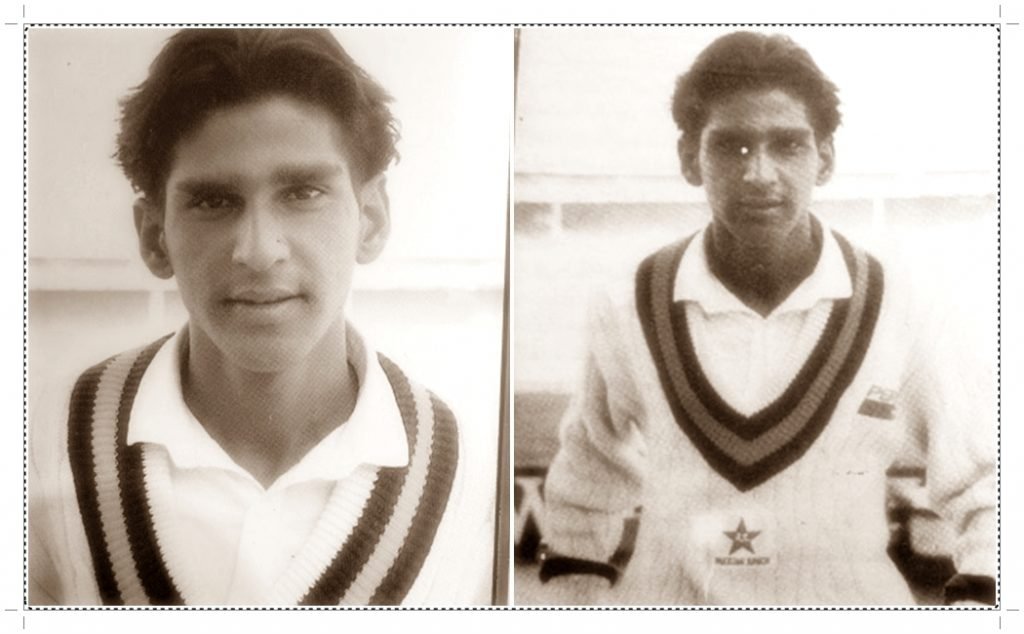Former Pakistan leg spinner Ali Hussain Rizvi was born in Karachi on January 6, 1974. No-ball penalty to be worth two runs By Christopher Martin-Jenkins, at Lord’s NO-BALLS in first-class and one-day cricket next season will produce two extra runs rather than one. What is more, they will be in addition to runs scored off the bat. For the first time in English cricket, a six-score off a no-ball will give the side eight runs.
This was the most significant of several changes to the playing conditions for next season agreed at the two-day winter meeting of the Test and County Cricket Board at Lord’s. The two extras will apply to all types of no-ball. Batsmen will be credited only with runs scored off the bat, but the two-run penalty will count against a bowler’s analysis. In the future, all balls passing above a batsman’s shoulder height will be regarded as no-balls, not as wides.
Again, therefore, the penalty will be two runs, not one.Monsoon rains cast a shadow over his one and only test appearance. Ali Hussain Rizvi earned his solitary Test match cap for Pakistan on sheer merit. But as the monsoon rained, injury and illness starred in this game. The play was possible for only two days. This was a test between Pakistan and South Africa at Sheikhupura, the hometown of Aqib Javed, in October 1997.
After that, Ali Hussain Rizvi completely disappeared from the cricket scene. The last time he did play for a domestic team was way back in the 1999–2000 season. And strange though it may sound too many, he was talented enough to play more for Pakistan.
Back in 1997–98, when he played in his sole Test against visiting South Africa, he had prosperous seasons. In 22 first-class matches for his employers, Pakistan Customs, and home side Karachi Blues, the 6ft tall leg break bowler had accumulated a 63 wickets haul at a reasonably economical average of 30.77. But his brief stint at the test level hardly brought him any joy.
That Sheikhupura match was a rather forgettable one, although not for everyone involved. Wisden went on to observe. Meanwhile, a groin injury ended wicketkeeper Dave Richardson’s unique run of 38 Tests for South Africa since their re-admission in 1992-93. Then 20-year-old Mark Boucher stepped up after a hasty journey from East London.
Lance Klusener played because Allan Donald was injured, and South Africa included both their spinners as Schultz had flown home. After being washed out the first day, Kallis was rushed into the hospital with appendicitis, and Jonty Rhodes replaced him.
Pakistan was reinforced by Wasim Akram after six months of lying off with a bad shoulder and losing Waqar Younis to a bruised foot. Then Pakistan added Ali Hussain Rizvi to the Test match. In addition to a senior leg break and googly bowler Mushtaq Ahmed, South Africa in a little over 115 overs and was helped by some good batting by Gary Kirsten 56, Adam Bacher 96, Skipper Hansie Cronje 50, Shaun Pollock 82, and Lance Klusener 58 rattle up a score of 402. Young leg spinner Ali Hussain bowled 18.3 overs, bringing him two wickets for 72 runs.
First, he got Pat Symcox caught by Muhammad Wasim, and then Ali Naqvi caught Shaun Pollock for his second wicket. Ali Hussain Rizvi, despite a funfair loop and plenty of turns, looked out of his depth. In the third test, Waqar Younis came back, and there was no place for Ali in the lineup.
Read More: Samiullah Khan Niazi – Left-arm Fast Medium Bowler
Ali Hussain Rizvi, born and bred in Karachi, had to bowl in the shadows of Mushtaq Ahmad for the majority of his career. But it was a performance right out of the top drawer that brought him national recognition. It was against the South Africans on the letter’s same tour of Pakistan in 1997–98. Before the two teams entered the first Test at Rawalpindi, Ali had already made his presence felt.
While the tourists played a drawn tour opener against PCB Combined XI in Karachi, Ali simply went on picking one wicket after another. Ali Rizvi had a haul of 89 out of that. He was even better in the second inning, taking six for 57, his career-best figures, for a match return of 11 wickets for 146 runs.
In a career that lasted seven years from 1993–94 to 1999–00, Ali Hussain Rizvi bagged a total of 171 wickets at 26.44 runs apiece. He appeared in only 54 first-class matches. He certainly could have played more. Ali Rizvi had a good tour of England in 1997 with the Pakistan A side; thus, it seems unfortunate that his career was too short.
